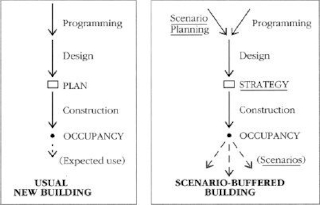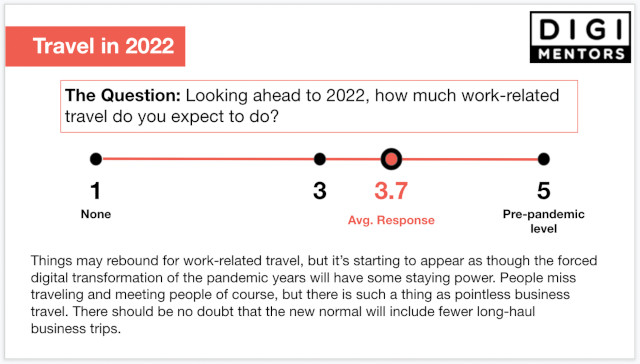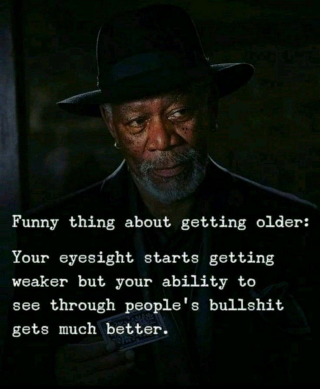[From Pixabay]
Good morning,
Despite some concerning signals on Covid from China and Europe, many Indian companies seem to be fairly confident that it’s back to business now, and many are expecting their employees back in office. From our conversations, we gather that younger employees and many older ones too, having experienced work from home, are reluctant to go back to buildings that were designed for an earlier era.
It’s time then to reflect on the nature of buildings, and one of the best books that guides us through the process is Stewart Brand’s How Buildings Learn: What Happens After They're Built. It was also turned into a six part BBC documentary. Brand divides buildings into three types: commercial, domestic and institutional. He writes:
“Commercial buildings have to adapt quickly, often radically, because of intense competitive pressure to perform, and they are subject to the rapid advances that occur in any industry. Most businesses either grow or fail. If they grow, they move; if they fail, they’re gone. Turnover is a constant. Commercial buildings are forever metamorphic.
“Domestic buildings—homes—are the steadiest changers, responding directly to the family’s ideas and annoyances, growth and prospects. The house and its occupants mould to each other twenty-four hours a day, and the building accumulates the record of that intimacy. That is far less the case with renters, who must ask permission from landlords and have no hope of financial gain from improvements, but two-thirds of Americans (and Britons) own their homes.
“Institutional buildings act as if they were designed specifically to prevent change for the organisation inside and to convey timeless reliability to everyone outside. When forced to change anyway, as they always are, they do so with expensive reluctance and all possible delay. Institutional buildings are mortified by change.”
Later in the book he makes an interesting observation.
“All buildings are predictions.
“All predictions are wrong.
“There’s no escape from this grim syllogism, but it can be softened. Buildings can be designed and used so it doesn’t matter when they’re wrong. Vernacular building types often have this quality of forgiveness, but how do you develop it in a new building, or in a difficult building that you’re stuck with?”
Strand suggests we think in terms of scenarios. “The product of skilled scenario work is not a plan but a strategy. Where a plan is based on prediction, a strategy is designed to encompass unforeseeably changing conditions. A good strategy ensures that, no matter what happens, you always have manoeuvring room.”
As we get our offices ready for a post pandemic scenario, the big challenge for corporate leaders is to design a strategy, rather than come up with a plan. He illustrates it with this example.

How is your organisation doing?
The rest of 2022
As Covid-fuelled curbs are rolled back and companies urge people to get back to work, Sree Sreenivasan and his researcher friends shared their findings and that got our attention. Sreenivasan is a visiting professor at the Stony Brook University’s School of Communication and Journalism in New York.
“People are travelling again, they are going to the office (at least sometimes), and enjoying meals INSIDE restaurants—but not everyone. It’s a weird mix, and it’s tough to navigate.
“To learn more, we put out a simple survey that asked people both how they had been affected by the pandemic, and how they see this year panning out. The 400 responses were interesting, especially regarding opinions of how the last year had been. I expected there to be a relatively broad dissatisfaction with work, or at least some very middle-of-the-road responses, but people were generally satisfied with how work had gone in 2021—3.8 out 5, with 5 being extremely satisfied.”
One of the questions the survey asked was around business travel.

Having placed all this in some perspective, Sreenivasan and his team have a few pointers on what the rest of the year will look like.
“Even if everything goes back to normal, events have been permanently transformed. There will be lots of in-person events, which people crave. But the era of all speakers happily flying for hours to do a 45-minute panel are over. Instead, expect featured speakers to do deeper engagements and many panellists to so just Zoom in.”
Dig deeper
- Work, travel and events in 2022 (Sree’s Sunday Note)
The outliers
In its most recent wave, Covid seems to have infected almost everyone. If you are one of the people who say, not me, a piece in Huffington Post offers five reasons how you escaped.
Reason 1: Because vaccines, masking and distancing works
Reason 2: Because you’ve remained totally isolated
Reason 3: Because you did actually have it, you just didn’t know
Reason 4: Because household transmission is not a given
Reason 5: Because, well, luck
Which category do you think you belong to?
Dig deeper
The evolution of life

(Via WhatsApp)
Found anything interesting and noteworthy? Send it to us and we will share it through this newsletter.
And if you missed previous editions of this newsletter, they’re all archived here.
Warm regards,
Team Founding Fuel

